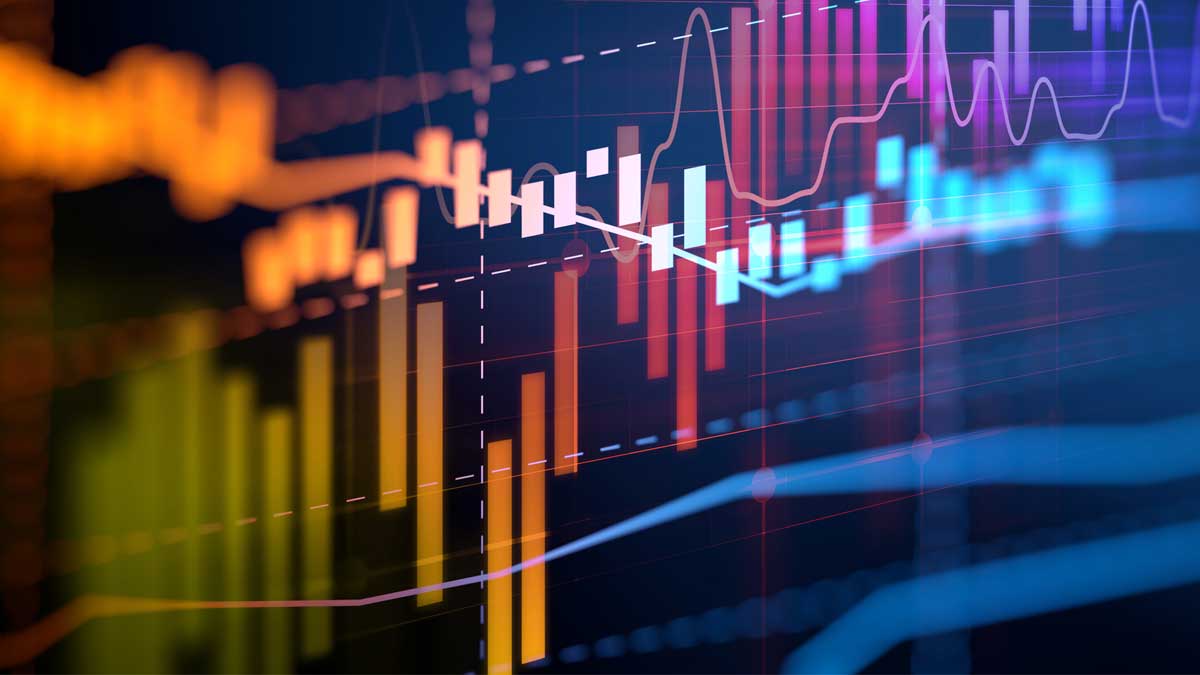It was a bumpy month for markets as volatility continued to linger.
After a strong first nine months of the year, the “everything rally” took a breather in October. Volatility increased throughout the month as investors digested a slew of economic reports. Amid slowing inflation and mixed labor market data, expectations shifted for the path of interest rates. Markets are still pricing in cuts for the November and December Fed meetings, but there’s more uncertainty around the number of expected cuts for 2025 now.
Despite the pullback, losses remained relatively modest for US equities. Smaller companies fared slightly better than larger companies, as the CRSP US Small Cap Index declined 0.72%. The Nasdaq 100, S&P 500, and Dow Jones Industrial Average fell 0.82%, 0.91%, and 1.26% respectively. As a whole, growth outperformed value as a style for the month, while cyclical and defensive sectors were mixed.
Markets overseas trailed their US counterparts. Emerging markets fell 2.68% while developed international stocks dropped 5.13%. Signs of softening economic data in Europe combined with geopolitical uncertainties created further headwinds abroad. With the weakness, the European Central Bank announced its third rate cut for the year, highlighting a more predictable path relative to the US.
While there was no Fed meeting in October, interest rates surged higher as investors reassessed expectations. The 10-year Treasury yield rose from 3.81% to 4.28%, resulting in a 2.48% loss for aggregate US bonds. This snapped a streak of five straight monthly increases for bonds, though most traditional fixed-income categories remain positive for the year.
There’s sure to be a lot of noise in November, with the presidential election and another Fed announcement. This is why it’s so important to have a plan and investment strategy in place. As investors, we need to look past the short-term headline grabbing events. Our focus should be on our long-term goals and how to most efficiently achieve them, regardless of who is president or where interest rates land.
I heard it through the grapevine…
Nearly two years after a tornado caused extensive damage, Sam’s Club reopened its location in Grapevine, Texas.
Not only is this the wholesaler’s first store opening in seven years, it also marks its first ever all-digital warehouse.
The new club will have no checkout lanes or cashiers. Instead, customers will ring up their purchases themselves via a mobile app and walk out through an AI-powered blue archway.
In the area typically reserved for cash registers, the company is displaying QR codes for online-only items.
Sam’s Club is doubling down on adding futuristic shopping features, which it attributes to a bump in Gen Z membership increases. The company hopes this strategy will help differentiate itself from rivals like Costco.
It’s all downhill from here…
After a decades-long rise, US obesity rates seem to be on the decline.
According to data from the National Health and Nutrition Examination Survey, adult obesity rates in the US dropped by roughly 2% between 2020 and 2023.
While there’s no direct evidence to link the fall in the rate with the increased usage of medications like Ozempic and Wegovy, the correlation appears to be high.
A sustained fall in obesity rates would be considered a major public health victory, but pharmaceutical companies are reaping the rewards too.
Novo Nordisk, which has a larger market value than the entire economy of its home country Denmark, said Ozempic accounted for 27% of its sales in 2023.
Broad Market Returns
| Asset Class | 1 Month | 3 Month | YTD | 1 Year |
| S&P 500 (VOO) | -0.95% | 3.65% | 20.85% | 37.97% |
| NASDAQ (QQQ) | -0.86% | 2.86% | 18.66% | 38.85% |
| Large Cap Growth (VUG) | -0.26% | 4.44% | 23.80% | 44.15% |
| Large Cap Value (VTV) | -1.38% | 3.01% | 17.98% | 32.26% |
| Small Cap Growth (VBK) | -0.20% | 2.16% | 11.02% | 35.19% |
| Small Cap Value (VBR) | -0.99% | 0.73% | 12.70% | 34.51% |
| Developed International (VEA) | -5.13% | -1.36% | 6.47% | 22.32% |
| Emerging Markets (VWO) | -2.68% | 5.48% | 14.19% | 26.36% |
| REITs (VNQ) | -3.36% | 5.05% | 9.72% | 34.59% |
| Aggregate Bonds (BND) | -2.46% | 0.26% | 2.02% | 10.45% |
| Corporate Bonds (VCIT) | -2.50% | 0.70% | 3.42% | 14.10% |
| High Yield Bonds (JNK) | -0.99% | 2.15% | 6.87% | 15.79% |
| Long Term Treasuries (VGLT) | -5.24% | -1.34% | -2.66% | 14.95% |
| International Bonds (BNDX) | -0.72% | 1.03% | 2.66% | 9.59% |
Market Health Indicator
The Market Health Indicator (MHI) measures market health on a scale of 0 – 100, analyzing various market segments such as economics, technicals, and volatility. Higher scores indicate healthier market conditions.

Fun Facts
- According to their botanical classification, bananas are considered berries while strawberries are not.
- Russia fined Google $20 decillion (that’s $20 with 33 zeros after it). This “symbolic” number far exceeds the size of the entire global economy.
- A “jiffy” is an actual unit of time, measuring how long it takes to travel one centimeter in a vacuum. It’s approximately 33.3564 picoseconds.
- While each year is unique, October tends to be the most volatile month while November has been the best.
– The Aspire Wealth Team


